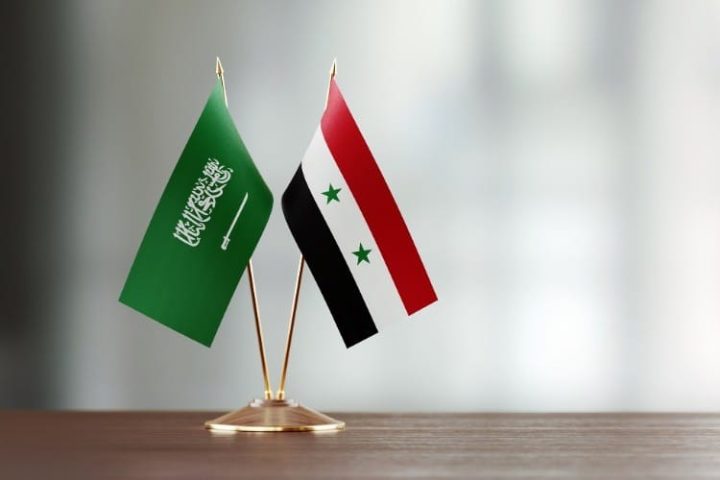
Saudi Arabia is planning to invite Syrian President Bashar al-Assad to an Arab League summit that Riyadh is hosting in May, according to three sources familiar with the plans, a step that could formally end Syria’s regional isolation.
Saudi Foreign Minister Prince Faisal bin Farhan is poised to head over to Damascus in the coming weeks to formally invite Assad to attend the scheduled May 19 summit, two of the sources revealed.
Gamal Roshdy, a spokesman for the Arab League secretary-general, said the group is not aware of every move in terms of bilateral country ties. “We are not supposed to be informed in advance about the assumed visit,” he elaborated.
Assad’s presence at an Arab League summit would be a vital development in his country’s reconciliation with the Arab world since Syria was suspended from the group in 2011. Several Western and Arab states boycotted Assad due to his suppression of domestic protests that contributed to a long civil war. Hundreds of thousands of people have died in the war, which involved various foreign powers and divided the country.
Although Syria’s return to the 22-member body would be mostly symbolic, its attendance at the summit would mark a shift in the group’s stance towards the Syrian conflict.
In March, sources informed Reuters that Riyadh and Damascus had arrived at an agreement to reopen their embassies after the Muslim month of Ramadan. Although the Saudi Foreign Ministry did not confirm that both sides concluded a deal, it admitted that it was in discussions with the Syrian Foreign Ministry to reboot consular services.
One of the three sources revealed that talks have been underway for more than a year as Saudi Arabia presented a list of conditions for the Syrian government to fulfill before bilateral reconciliation. Such demands included enhanced collaboration on border security and drug trafficking. Arab states have demanded that Syria enforce controls on its borders and eradicate the production and smuggling of Captagon, a cheap methamphetamine that has become a problem in the Gulf States.
Initial talks for a visit by Prince Faisal to Damascus or by Syrian Foreign Minister Faisal Mekdad to Riyadh were put on hold because of the earthquakes that struck Turkey and Syria in February, one of the sources disclosed.
Importantly, Arab League bigwig Egypt has also rebooted communications with Assad. Both sides agreed to boost cooperation during Mekdad’s visit, the first official visit by a Syrian foreign minister to Cairo in more than 10 years.
According to Reuters, an Egyptian security source said that Mekdad’s visit was to facilitate Syria’s reconciliation with the Arab League through Egyptian and Saudi mediation. Mekdad met his Egyptian counterpart Sameh Shukri, who urged for a “comprehensive political settlement to the Syrian crisis.” In contrast to other Arab countries closing down their embassies in Damascus in 2011-2012, Egypt reduced its representation but kept its embassy open.
Contact between Saudi and Syrian officials gathered steam after a historic rapprochement in March between Iran and Saudi Arabia, brokered by China. Notably, Iran has been Assad’s main supporter. Such a landmark reconciliation reflected a key regional realignment amid frosty ties between Iran and Israel.
Undeniably, China has played a significant role in enabling the recalibration of regional ties, apart from its successful attempt in reconciling the Saudis and Iranians earlier this year.
On March 29, Saudi Arabia agreed to join the Shanghai Cooperation Organization as a “dialogue partner,” the latest indication of closer political ties with China. The Saudi Cabinet approved the decision at a March 28 meeting led by King Salman, the official Saudi Press Agency reported. Effectively, membership would give Riyadh “the status of a dialogue partner in the Shanghai Cooperation Organisation,” the report said.
Set up in 2001, the Shanghai Cooperation Organization is a political, economic, and security group functioning as an alternative to Western institutions.
In addition to China, other members in the group include India, Pakistan, and Russia, as well as four Central Asian countries — Kazakhstan, Kyrgyzstan, Uzbekistan, and Tajikistan.
Other countries with either observer or dialogue partner status include Egypt, Iran, and Qatar.
In his first public remarks on the matter since the Saudi-Iran deal was struck, Chinese President Xi Jinping said that talks brokered by China would be key in “strengthening regional unity and cooperation.”
However, countries such as the United States and Qatar have lambasted the normalization of relations with Assad’s Syria, highlighting his government’s harsh repression of opposition during the Syrian conflict and the lack of progress toward a political solution in Syria.
That being said, the Saudi prince has indicated that he is prepared to proceed with foreign-policy decisions without the help of the United States, be it rekindling relations with countries such as Iran, or oil production cuts.
By doing so, Saudi Arabia aims to concentrate on its massive economic transformation plan, Vision 2030, in which the prince has invested hundreds of billions of dollars to open the kingdom to business and tourism amid rising regional competition.
The Saudis’ strategic realignments began in 2019 after the destructive attacks on Saudi Aramco’s oil facilities — after which Riyadh doubted U.S. security commitments to the region. Admittedly, Israeli attacks on Iranian targets further compelled the Saudis to embark on foreign-policy decisions without the United States.
On Sunday, U.S. Assistant Secretary of State for Regional Affairs Barbara Leaf acknowledged the reality that Washington’s allies “want to try engagement” with Assad. “Our approach on that score is to make sure to get something in return,” Leaf said. At the point of writing, the Saudi government’s communication office and the foreign ministries of both countries have not responded to requests for comments.



